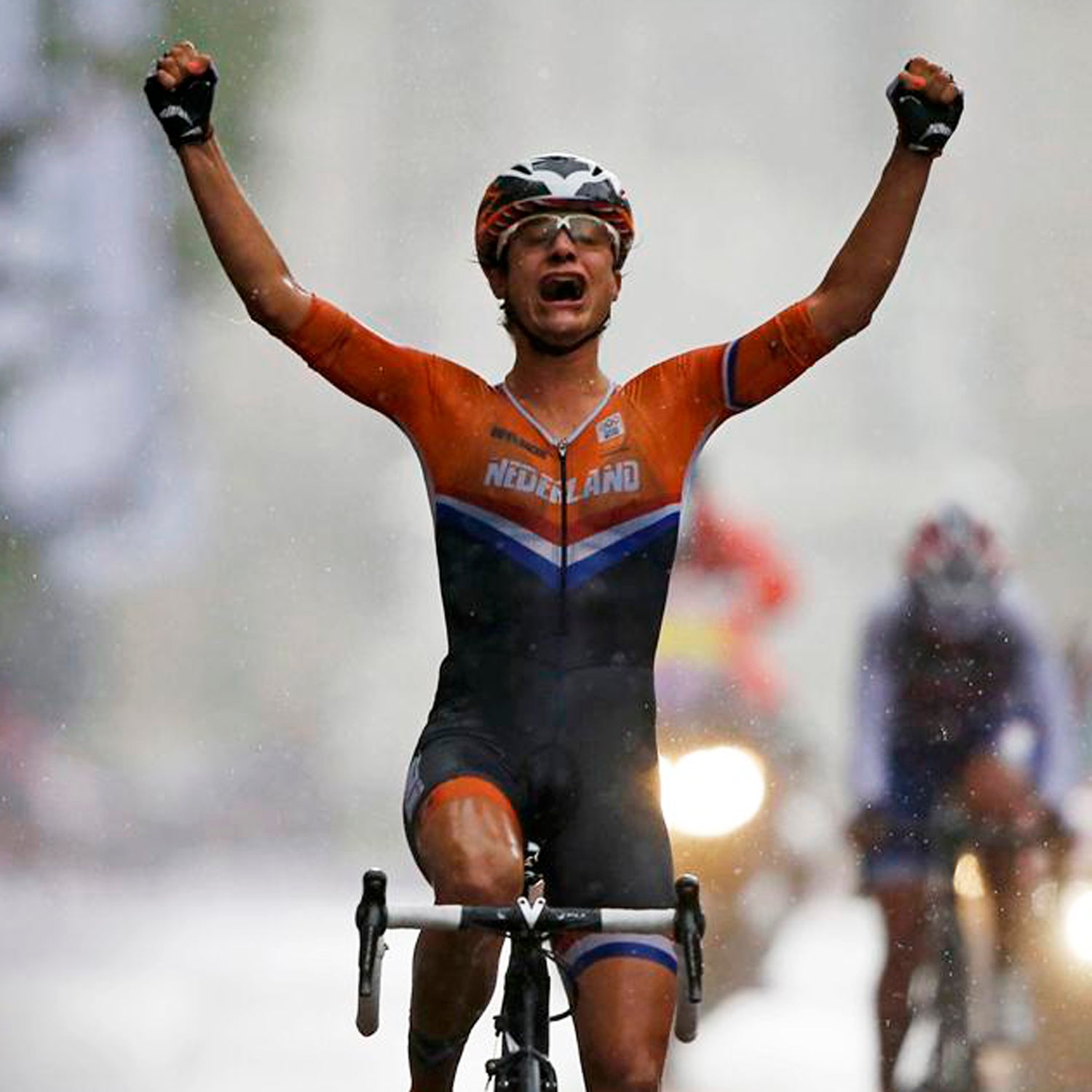Arguably the most marquee event in women’s cycling is taking place this weekend, and the majority of people probably don’t even know about it. On Sunday, after a 16-year hiatus, female riders will once again share in the prestige of the Tour de France at a one-day race called La Course.
Before the Tour steams into Paris for its concluding drag race down the Champs Élysées, some of the top women’s teams in the world will line up for a criterium on those same roads. The racers will complete 13 laps on the same cobbled circuit that the men finish on, for a total of 90 kilometers.
The race is the brainchild of journalist–turned–road-racer Kathryn Bertine, along with two of the world’s top female racers, Emma Pooley and Marianne Vos. The group, which has continued to add big names to its ranks as the movement progressed, has been working on making La Course happen since 2012.
Given cycling’s staid and traditional outlook, it wasn’t easy. It took a petition, which garnered more than 100,000 signatures, to get the attention of ASO, the parent company of the Tour de France.
In some ways, La Course is a milestone—the first time that women have competed on the same stage as men. Using the same infrastructure and media as the Tour’s final stage, it will put women’s racing in front of one of its biggest-ever audiences short of the Olympics. Prize money for the race is €22,500, the same amount that the men earn for winning a stage at the Tour. It will be broadcast live, even here in the U.S., where any cycling coverage—male or female—is rare.
On the other hand, the event also reinforces the lack of parity between men’s and women’s cycling. Compared to the 21-day, 2,300-mile extravaganza of the Tour, La Course is hardly a drop in the bucket.
And the course itself isn’t even as long as the men’s day, which is considered by most the easiest stage in the Tour. And it’s being held five full hours before the Tour stage, long before the men even take their start, meaning that the crowds and visibility will inevitably be much lower than they otherwise could have been. Even the TV representation is questionable. In three weeks of watching the Tour, we’ve yet to see La Course promoted.
This is hardly the first time that women’s cycling has gotten short shrift. Previous attempts at a women’s edition of the Tour, then known as La Grand Boucle Féminine, suffered from underfunding, poor organization, and a lack of media coverage and support, which eventually lead to the event’s demise. There was the Exergy Tour, which was billed as the great hope for women’s cycling in the U.S. when it launched in 2012, but failed even before its second year after the sponsor pulled out. And of course there were the infamous comments of Pat McQuaid just two years ago, when he was president of the UCI, that he didn’t believe that women’s cycling was worthy of a minimum wage.
The fact is, while many have called La Course an equalizer for women’s cycling, it is, at best, a baby step. A few months ago, I was talking about to Evelyn Stevens, one of the top women’s US road racers with Specialized Lululemon and I sensed the same frustration.
Stevens was careful to say that she’s excited about the event and grateful for the exposure and chance. But there was also the underlying frustration that where ASO could throw its might behind women’s cycling and really help to promote it, they have created what’s little more than a parade.
Don’t get us wrong: We’re thrilled to see the best women on the planet throw down on the world’s biggest stage, even if it is hours before the main event. With the likes of Marianne Vos, Emma Pooley, Georgia Bronzini, and Elisa Longo Borghini, the race is sure to be every bit as exciting as the men’s event—perhaps moreso given how many of the favorites have been struck down from this year’s Tour. You can bet we’ll be tuning in.
We just hope that La Course will prove to be a stepping stone to bigger things, as Vos says it should be, and not just another high-profile misfire.
One day, we hope that little girls everywhere might know the phrase, “Vive le Tour Féminin!”
